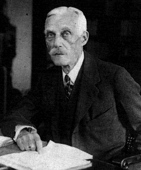| Hemp in the Commercial Arenaby Paul Benhaim | |||||||||||||
| As may be emerging here, Hemp is possibly one of the most diverse crops known to man.From Hemp we can produce fibre for clothing and pulp for paper; we can press its seeds into oil, and it can also supply nutrients and biomass. Why, you may ask, do we not see Hemp being used for these purposes more often? Is it because all the Hempsters are stoned? Or is it possibly to do with the conspiracy theories that show that members of large political parties, accountants and lawyers of the larger industries were, and still are, in direct opposition to the Hemp alternatives. We can link the success of the paper industry to the fact that William Randolph Hearst, owner of a major newspaper chain, introduced the pejorative term "Marijuana" to the American public. He also owned vast timber holdings which fed this paper industry, which used chemicals developed by DuPont who also dominated the petrochemical market, and manufactured plastics, paints and other environmentally-damaging products that could all be replaced by Hemp. Is it not obvious how connected all these people were, and how easy it was for their circle of friends to create "the assassin of youth" image that has stuck with cannabis ever since? Henry Ford demonstrated to the camera the strength of his car "grown" from a combination of Hemp and other annual crops and designed to run on Hemp fuel. Mr Ford demonstrated the strength of this cellulose-based plastic alternative by trying to smash it with an axe - which bounced off without causing a dent! Enter Andrew Mellon, Secretary of the Treasury of Gulf Oil, the richest man in America at the time, who lent DuPont money to purchase General Motors. They blocked every avenue that could bring Hemp to the public as the perfect community-based crop. DuPont and Mellon pushed legislation through Congress giving tax breaks to Oil companies. The rich got richer, the poor got polluted and lied to.
These are only the most famous examples at the largest scale of how Hemp has become intertwined with its psychoactive properties so closely to create a negative image for a plant that could quite easily change the world we lived in. We could:
The politicians, large industries and their financial and legal advisors all know the potential of Hemp. It is not something new. But as time goes on, it would involve more and more financial investment to replace machinery designed to work efficiently with less eco-friendly materials. And the fact that Hemp can be grown anywhere would mean everyone would start growing it, spreading the profits and workload equally across, not only our country, but the planet. And this makes no economic sense to them. Who would be at the top? How could there be large centralised industries? It is too much of a change. Big companies will only accept slow change. Hemp has the potential to change the society we live in within ten years in a way that would accelerate the chaos that is so obviously happening anyway. If this "feeling" were to become public, how could companies control us through the advertising campaigns and political broadcasts that they use so extensively today? I am sure they would try and find a way, but once Hemp spread out into such a diverse range of industries, it would bring about some form of industrial revolution. Is this not what we need? How long can we wait - while more oil is spilt into our water, more organochemicals released into our food chain, and the holes in our protective ozone caused to grow and grow? What do the people in power sit around and talk about in their boardrooms? Is it how their companies can change this situation, or how much money and market control they can gather today? They all have a choice; but are they all too blind to see? There are many Hemp companies sprouting up all around the world. New Earth is a British example of a company that has expanded rapidly within two years of trading. They can now make descisions on how food is packaged and what processes are used, from the growing of the ingredients, through the processing stages to the final consumption by the general public. There is no lack of such "Hemptrepreurs" around. But how far can they get without large amounts of funding from those industries and organisations that have always truly been against such businesses? What is needed is large funding from such "karmicly dirty" sources recycled into a New Earth.
| ||||||||||||||



